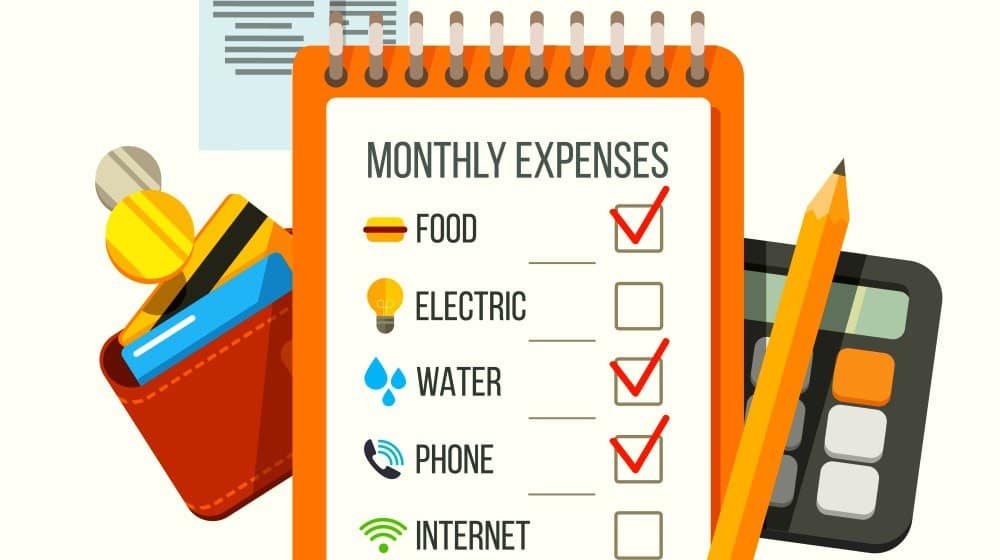Tracking your costs is one of the most important aspects of making your budget work for you. You can't determine whether you've overspent if you don't know how much you've spent each month. Even minor costs might drive you to overspend.
There are various alternatives for keeping track of your costs. A written ledger or tracking system is one of the most basic. It may be even simpler to select budgeting software that integrates with an app for tracking spending on your phone. It will help you to stay current while on the move. It's critical to understand how to keep track of your costs in a notebook. It can also assist you in becoming more conscious of what you are spending and where you are spending it.
Key Takeaways
- Keeping track of your costs using pen and paper compels you to think about each purchase.
- Once you know how much you're spending, you must stick to your budget and stop spending when your spending restrictions are reached.
- Budgeting tools and applications simplify the process by automating most of the labor.
Create a Ledger
First and foremost, you must have your budget with you. You should also carry a notebook with you. You should split your paper into three columns. Each budget category must be included at the top of the column. Then, next to it, you must record the given amount. If you haven't made a budget and are tracking your costs to do so, you should start with the basics: utilities, food, rent, dining out, fun money, and insurance. Make a note of each of them at the top of the document.
Record Your Expenses Throughout the Day
Following that, you must set aside time each day to log your spending. As you record each cost in a category, keep a running count of how much money remains in that category. Simply deduct the amount you spent from the current total and write down the result. It could be useful to have two columns, one for spending and one for the current total. You could also wish to write the total in a different color. If you're keeping track of your spending to figure out how much you spend, you'll need to add the amount you spent to your running total.
If you're married, it's a good idea to sit down and go over how much you spend each day. It is especially vital if you are new to budgeting. It might assist you in encouraging each other as you modify your spending habits.
Stick to Your Spending Limits
When you notice that you are running out of money, you must stop spending. This is a critical step in remaining inside your budget. You may discover that your budget is unrealistic or that you must shift funds across categories. Spend some time at the end of the month adjusting next month's budget so that it works for you. It is critical to remember that saving and debt repayment should take precedence over dining out and taking holidays. You will need to make some sacrifices, but you should be able to eat every day.
Decide What to Do With the Money You Didn't Spend
You can roll the money over into the next month's category or move it to a savings account at the end of the month. If you have variable costs, such as your electricity bill, you may wish to roll the amount forward to help equal out the cost of utilities each month. You may wish to shift goods to savings in order to build up your emergency fund or work toward other goals.
Other Options
A ledger isn't the only way to keep track of your spending. Another alternative is to track your spending using budgeting software or a budgeting system. It can save you time and make managing your monthly budget easier. There are several alternatives for managing your funds, and it is critical to select the best budgeting software for you. You should ideally discover something that will function across platforms and connect with your bank. If you're married, you'll want something that allows both of you to enter costs while on the road to make budgeting much easier.
You can also go cash only in categories where you spend a lot of money each month (groceries, eating out, and entertainment categories). At the beginning of the month, you will create an envelope for each category and place the money you budgeted in it. You will bring the envelope with you when you go shopping for those categories. Keep the receipts in the envelope so you can figure out how much you spent at the end of the month.
Questions and Answers (FAQs)
Why is it necessary to keep track of your spending?
When you're not paying attention, it's simple to spend significantly more than you realize. Long-term financial health necessitates careful planning and dedication, and tracking your spending helps you remain on target. Otherwise, you'll always wonder where your money went when you look in the mirror.
How do I keep my expenditures under control?
The first step in gaining control of your spending habits is to keep track of what you spend. Once you know where your money is going, you may select which areas do not align with your long-term objectives, create a budget for those areas, and put any necessary restraints in place. New behaviors may include just spending cash, buying with a list, and dining out less.


